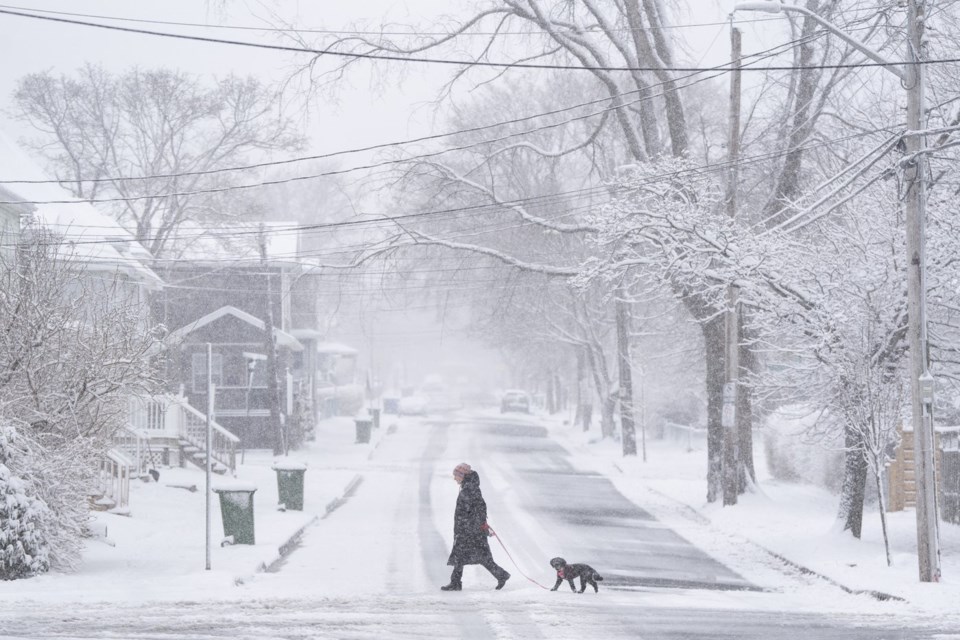HALIFAX — Winter weather made a messy comeback Tuesday in parts of Atlantic Canada, with snow, ice pellets and freezing rain in the forecast.
Slippery conditions led to school closures in Nova Scotia, including in the Halifax regional school authority. Snowy weather slowed traffic in Halifax, and the main bridges across the harbour were bumper to bumper with vehicles during the morning commute.
"It's not unexpected for this time of year, it's just not really desired," Ian Hubbard, Environment Canada meteorologist, said in a telephone interview.
The forecast in mainland Nova Scotia and parts of Prince Edward Island, New Brunswick and Newfoundland called for gusty winds and accumulations of about four to nine centimetres of wet snow and ice pellets. The snow was expected to gradually taper off overnight and into Wednesday, with sunny and warm conditions coming Thursday in many areas.
March 20 was the first official day of spring, but it's common for the region to have at least a few snowy days in the weeks before Easter, Hubbard said. Four storm systems hit Atlantic Canada prior to Tuesday; two of them brought snow and freezing rain.
"We've had a couple of areas in the region that have received over 30 centimetres," Hubbard said about all the snow that has fallen since March 20. Before the most recent storm, Sydney, N.S., received a total of 42 cm, Charlottetown was hit with 34 cm, and Moncton, N.B., recorded almost 40 cm.
Hubbard said residents may be noticing the return of winter more this year than in years past because of record breaking temperatures on March 15, when the Halifax airport recorded almost 13 C and crocuses sprang up around the province.
A positive aspect of the storms, the forecaster said, is that they increase the amount of moisture in the ground, which can reduce the risk of spring wildfires.
On May 28, 2023, a wildfire erupted in the western suburbs of Halifax and forced the evacuation of 16,400 people and destroyed 200 structures.
"Going back to the fall, we've had some drier than normal conditions," Hubbard said. "So, any precipitation will certainly add to the overall amount of moisture in the soil, which is always important (in preventing fires)."
This report by The Canadian Press was first published April 8, 2025.
Michael Tutton, The Canadian Press



